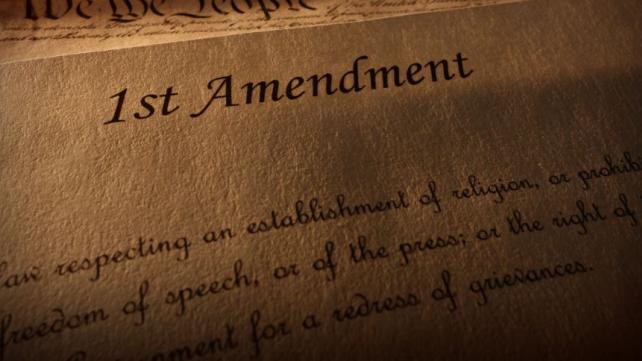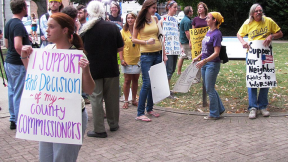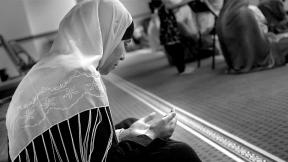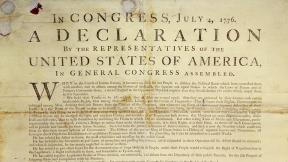
The Pew Research Center reported that when surveying American sentiments towards Muslims in 2019 that Muslims were regarded less favorably than any other group. The same study revealed that public-school districts reported violence, threats of violence and discrimination directed towards Muslim students. Muslim students who may attend a public school may experience real or imagined pressure to conform to the standards of other students or face ostracization or worse. This is exacerbated not only by the current targeted campaign and turn in public opinion about immigrants from other countries, but also the nationwide student protests about the genocide in Gaza, Sudan and strife in Muslim population countries like Yemen, Syria, Somalia, and other places. Many students return to public school during August. On August 22 of each year the United Nations designates it as the International Day Commemorating the Victims of Acts of Violence Base on Religion or Belief. Muslim students may be aware of the potential for bullying and its escalation in the public school but can navigate potential problems by upholding their rights to religious freedom, networking and relying on Allah.
Rights to religious freedom
Even with the changes to the Department of Education that came after the Trump administration’s second term, religiously mandated practices are protected by the First Amendment. The Department of Education’s brief “Guidance on Constitutionally Protected Prayer and Religious Expression in Public Elementary and Secondary Schools” requires a reasonable accommodation for religious dietary adherence, dress code and even prayer. The key is that these actions must not disrupt classroom instruction, protolyze to others or place an undue burden on the school. Even religious associations like a high school Muslim student club are protected.
College students around the nation exercised their rights to freedom of expression to protest the ongoing genocide in Gaza in 2025. This was met with arrests, restrictions and dismantling of school funds by the Trump administration. These types of retaliatory and punitive actions may place Muslim students under the spotlight.
However, the Trump administration stance on freedom of expression does not supersede the constitutional rights of freedom of religion. School administrations have the right and responsibility to maintain campus peace. This may involve guidance that curtails or limits political protests and speech that prompt tensions to run so high that students are at an increased risk of violence. But that has nothing to do with a Muslim student’s right to adhere to Islamic practices. Muslim students have no need to fear requesting any religious accommodation because of current war or genocide happening around the globe. Muslim students can pray for Gaza in their spaces. They can be activists addressing these atrocities as well. These are still protected rights in the United States which are maintained when the student themselves upholds them.
Networking
During times of hardship and political strife, specially when it involves Muslims from predominately Muslim majority countries, students need to create alliances. Whenever we are assessing how to navigate a particular issue facing the Muslim community, we all look to the Holy Quran and the life example of Prophet Muhammad (saw).
The Constitution of Madinah is an example of how important and effective it can be to network with other people. During this time of the prophetic age, the Prophet Muhammad (pbuh) migrated to Madinah to escape the persecution in Makkah. There he found converts, Jewish people and even pagan tribes. Here the groundbreaking foundational legal document was developed that not only promised and established freedom of religion for those in the area, but also inclusivity, cooperative work, trade and collective responsibility.
Muslim students in public schools, especially those who are also part of a Muslim campus organization can network and build alliances with other student groups that share the same ethical and moral response to the horrors of war and genocide. There is always strength in numbers, and it also takes away the concept that the only people concerned by the genocide in Gaza for instance, are Muslims. The tragedies unfolding in these war plagued countries impacts all of humanity and all of humanity – even the young – like students in school should respond with care, compassion and sustained action.
Tawakkul
Tawakkul is submission. With tawakkul the believing Muslim not only relies on Allah and trusts His greater plan, but also receives the benefit of reduced stress and anxiety because he knows without doubt that Allah is in charge. As Muslims we understand that Allah tests mankind with loss and hardship. But we also know that Allah is Ar-Rahman – The Most Merciful, Al-Jabbar – The Restorer, and Al-Mujib – The Responder. Allah is the sole Governor of all creation. The ebb and flow of the human condition is under the benevolence of Allah.
Muslim students attending public schools, especially during times of hardship, war and genocide must be ever vigilant in keeping up their prayers and dua.
- During times of quiet in the classroom – dhikr silently
- During prayer time at school make a du’a for those suffering
- Pray Magrib and Isha with the family and make du’a for the intercession of Allah
- Read the Quran in the early morning, or late at night, or while in library or in a lunch break to remind yourself to rely on Allah
Do you think you will be admitted into Paradise without being tested like those before you? They were afflicted with suffering and adversity and were so ˹violently˺ shaken that ˹even˺ the Messenger and the believers with him cried out, “When will Allah’s help come?” Indeed, Allah’s help is ˹always˺ near.
Surah Al Baqarah 2: 214
Author bio: Mahasin D. Shamsid-Deen is the news curator and content manager for Muslim Network TV (MNTV) and contributing writer for Sound Vision. She holds a master’s degree in English writing and has worked as both a High School and College ESL Instructor and Writing Instructor for more than a decade. Mahasin has numerous published articles, books, essays and is a published playwright with three award winning stage plays. She is currently writing her dissertation for her doctoral degree.








Add new comment